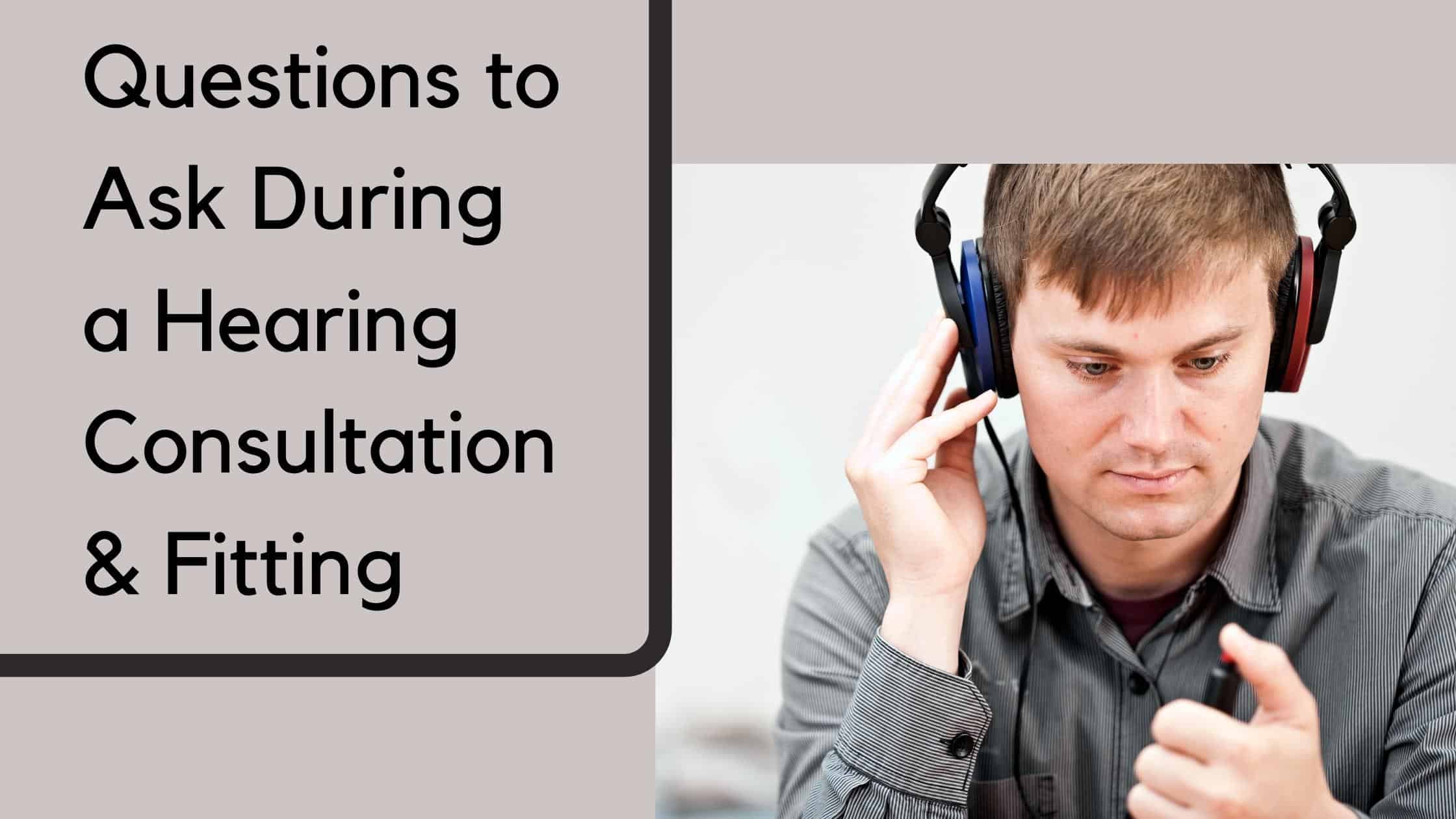If you are close to getting treatment for hearing loss, congratulations! This step in the direction of your hearing health is a great way to improve your communication, mental health, and even your cognitive functioning. Yet, in order to reap the benefits of hearing aids, you will need to make sure you’re getting the right pair for your needs and wearing them properly. For this reason, consultation, fitting, and training will be necessary to point you toward the best aids for you.
During these conversations, it can feel like a lot of information is coming at you all at once. When you are learning about the nature of your hearing loss, the capabilities and features of hearing aids, as well as the way to properly wear and maintain them, you might become overwhelmed and tune out some important information. Having a list of questions ready at hand can be a helpful way to navigate these conversations.
In addition, it’s wise to bring along a friend, loved one, or family member to help you remember everything you learn. Two minds are better than one when it comes to retaining information! Bring along a pen and paper to jot down some notes. The good news is that you can always get in touch after these meetings for consultation and reminders of what you heard in these busy sessions.
Consultation Questions
When you are consulting with your hearing healthcare provider about your needs, you will need to ask about the capability of your hearing aids to accommodate the individual features of your hearing loss. Some people struggle to hear the voice of one person in a room full of speakers. Others have particular trouble with the voices of children or the frequency range of women’s voices. Still, others find it difficult to communicate when there’s background noise of any kind.
If you struggle with one of these contexts or another one specific to your situation, be sure to mention this information during your consultation. You can ask if your hearing aids will be good at solving the problem. You might even ask if they have features that are specifically designed for background noise reduction, voice recognition, or customizable hearing profiles. Many of the latest hearing aids come with apps that allow you to modify the sound you hear, and that ability can make the difference between effective treatment and further confusion. You might also want to ask about the balance of cost and functionality to make sure you get the best hearing aids that fit within your budget. Once you get the results of your hearing test, you can ask your provider to explain what kind of hearing loss you have, including whether it is the same in both ears or if there is a particular range of sounds that are difficult for you to hear.
Fitting Questions
When you come in to be fitted with your hearing aids, your provider will make sure that you have a snug and comfortable fit in the curvature of your ears and the entrance to the ear canal, for some models. This fitting is an opportunity to ask more questions about the care and maintenance of your aids.
Most hearing aids require remarkably little cleaning or maintenance, but you might want to know how to handle different components, particularly the tubes that connect the microphone and the speaker in some aids. You will need to know how to maintain the battery, as well. Some aids have replaceable batteries that you will need to manipulate and carefully secure, while others use rechargeable batteries. Make sure to ask about water resistance and debris protection if you will be wearing your hearing aids outdoors.
With the answers to these questions, you will be well on your way toward reaping all the benefits your new hearing aids have to offer. If you find yourself forgetting any details or confused about any aspect of your hearing aids, don’t hesitate to make a call to clarify. We will be happy to explain how you can get the most out of your hearing aids, how to take care of them, and what to do if something goes wrong.

